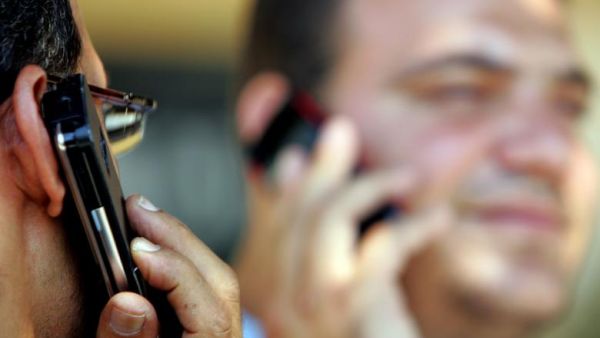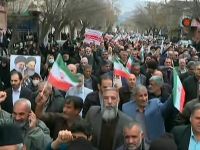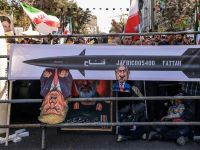Each day, between sunrise and sunset, the farmland stretching between Hosh al-Harimeh and Ghazze in the West Bekaa is “open for business.”
Before the influx of Syrian refugees, there was little activity in this area, but many have discovered this stretch of land to be an ideal location to get coverage from Syrian mobile phone carriers. Now, Syrians can make calls to their home country at half the cost of Lebanese tariffs.
The area resembles a park of sorts. Some peddlers even seek to make a living here, selling anything from coffee to Syrian mobile phone prepaid cards.
Abu Ali al-Shami comes here to contact his family, but also to earn money. At dawn every day, he comes in his car, bringing juice, snacks, and prepaid phone cards. Shami started his little venture five months ago when he found out that “many like me came to the area to get in touch with their relatives.”
“I then told myself, why not start a business, especially since I spent hours at times to place a call, because of frequent problems with communications in Syria,” he said.
Shami said that his best days are Thursdays and Fridays. As for the rest of the week, business depends “on which region is coming under fire” in Syria. To be sure, he said, callers from those regions rush to the area to check up on their relatives.
The phenomenon seen in Hosh al-Harimeh also occurs elsewhere, such as in the areas between the towns of Jdita and Chtaura.
Abu Yazan even went through the trouble of making a “cost-benefit” analysis. He calculates that the cost of commuting from Beirut to Chtaura costs less than making calls using Lebanese mobile phone carriers.
Sarcastically, he said, “If my wife and I were to call our parents from a Lebanese line, we would have to pay more than LL25,000 ($16). With this kind of money, we can fill up the car with gas, buy drinks and snacks, and have a picnic with the kids in the Bekaa.”
By Usama al-Qadiri









